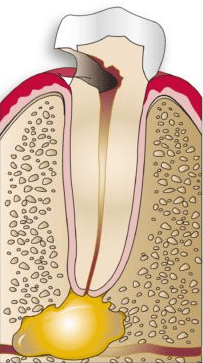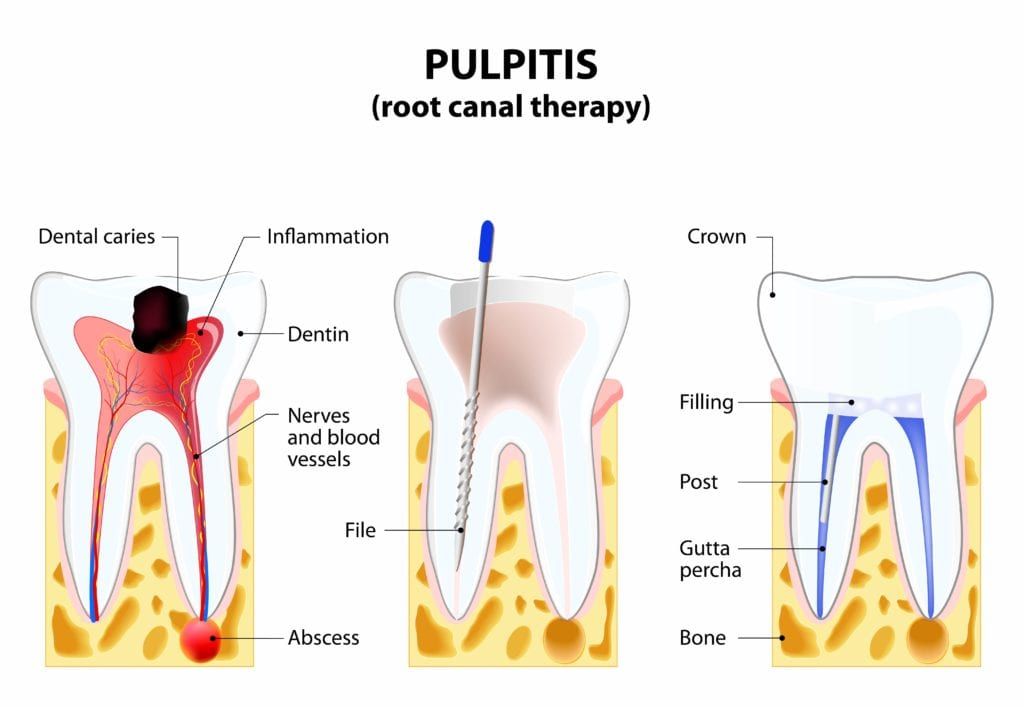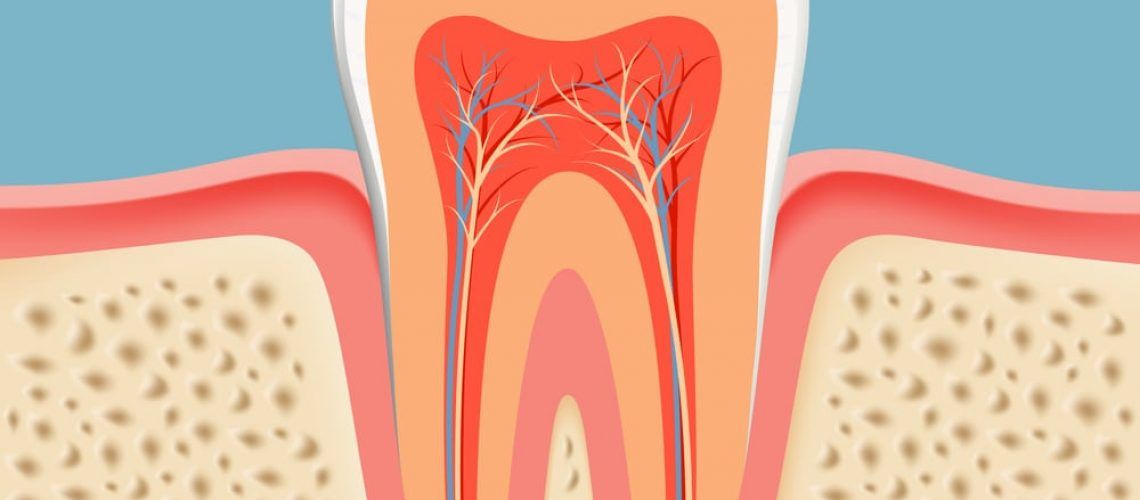Root canals are essential restorative dental procedures that are used in cases where the dental pulp has become infected. Pulp infections, also known as pulpitis, can occur when a tooth is significantly damaged or decayed, and allows bacteria to contaminate the dental pulp. Once bacteria has entered the inside of the tooth, it causes an infection that can only be treated with root canal therapy. During a root canal procedure, the innermost layer of the tooth, known as the dental pulp, is entirely removed. This prevents the infection from spreading, as well as effectively restores and preserves the tooth.
Did You Know?
Although many people believe root canals to be extremely painful, modern dental technology has made it so that root canals are no more uncomfortable than having a dental filling placed. Dental anesthetics are always used and some dentists even offer sedation as a way of relaxing their patients.
Frequently Asked Questions:

Do I need a root canal?
You may need a root canal if you are experiencing symptoms of a dental pulp infection. Some possible symptoms include sudden and severe tooth pain, discoloration of the tooth, or swelling and tenderness in the gums. If you are experiencing any of these symptoms, it is important to schedule a consultation with Dr. Perry Woo as soon as possible to discuss the cause of your symptoms. Pulp infections will not heal on their own, and the infection will continue to get worse the longer you wait.
What can I expect when having a root canal?
When having a root canal, you can expect that your dentist will first numb your mouth with dental anesthetic and offer you the opportunity for dental sedation. These two things will keep you comfortable and calm during your procedure. To begin the root canal procedure, your dentist will use a dental drill to make a tiny access hole in the top of your tooth so they can access the dental pulp.
Next, your dentist will remove any decayed tissue from the pulp chambers and root canals. The tooth nerve will also be removed as well. Once the decayed tissue has been removed, the entire pulp chamber and root canals will be thoroughly flushed with an antimicrobial solution. This ensures that the remaining cavity is completely cleared out of all bacteria.

The second part of a root canal is to restore the tooth. This is done by filling the inside of the tooth with a rubber-like material called gutta-percha. In some cases, a metal post or two may also be placed inside the tooth to provide extra support and stabilization. The tooth will then be completely sealed and a dental impression will be taken.
The information from the dental impression will be sent to a dental lab so that they can custom fabricate a crown that will fit around your tooth. In the meantime, you will have a temporary dental crown placed to ensure that the tooth is protected while you wait for your permanent restoration. In about one to two weeks, you will return to the dentist office to have your permanent crown placed. The permanent dental crown will be applied to your tooth, checked for fit, and then permanently cemented to your tooth.
What can I expect after having a root canal?
After having a root canal you may experience some residual soreness. However, this is not because of the root canal procedure, rather it is due to the excess inflammation caused by the pulp infection. Although the infection has been removed by the root canal, it will take a few days for the resulting inflammation to subside. During this time, over the counter pain medications can generally be used to relieve any discomfort you may be feeling.
Because your tooth will be sore, you may also want to maintain a temporary soft foods diet to avoid further irritating the tooth. In the case that you have a temporary crown placed, you also want to try ad chew on the opposite side of the mouth so that you do not risk damaging or having your temporary crown fall off. Once your permanent crown has been placed you can return back to your normal eating habits.
How do I take care of my teeth after a root canal?
To take care of your teeth after a root canal, you will want to prevent your dental crown from being damaged. To preserve your crown, you will want to avoid eating excessively hard, crunchy, or chewy foods. Additionally, you will want to refrain from damaging behaviors such as teeth grinding or clenching, chewing on ice or pens, or using your teeth as an opener. It is also important to practice good oral hygiene to prevent future decay. This means brushing twice a day and flossing once a day, and being sure to visit Dr. Woo for a dental exam and cleaning every six months.

